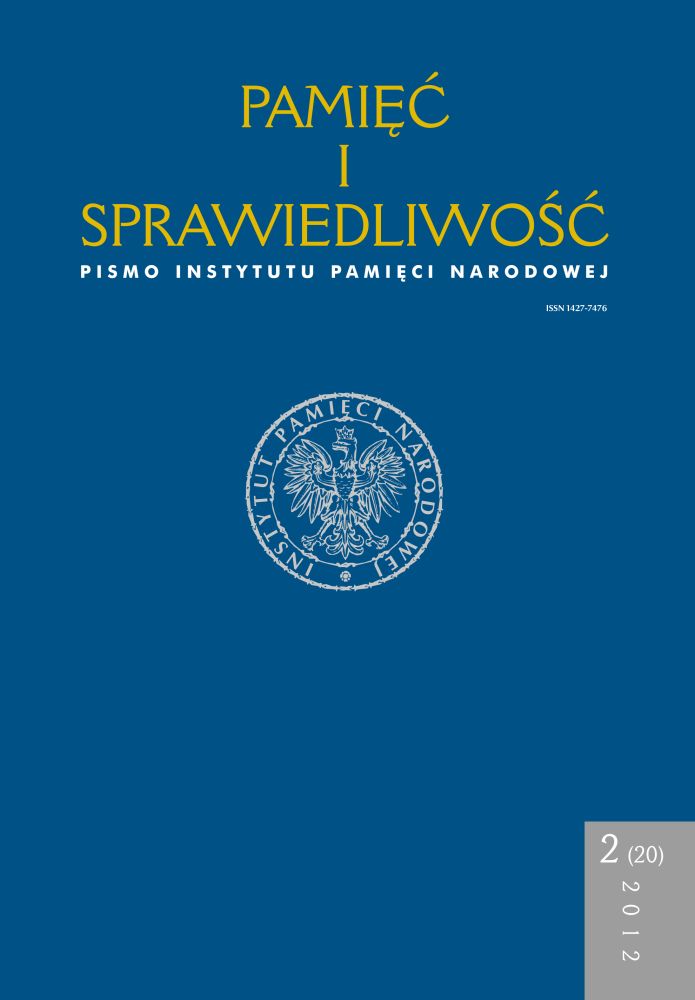„Klika obszarnicza”. Ziemianie w polityce personalnej Państwowych Nieruchomości Ziemskich (1946–1949)
“Clique of Landowners”. Gentry in the personnel policies of State Land Properties (1946−1949)
Author(s): Tomasz OsińskiSubject(s): History, Recent History (1900 till today), WW II and following years (1940 - 1949)
Published by: Instytut Pamięci Narodowej
Keywords: communist regime; the land reform; landowners; State Land Properties; Leonard Maringe
Summary/Abstract: The land reform reduced the role of the influential great landowners to the margins of public life, depriving them of political influence, material assets, and evicting them from their family estates. The communists repressed landowners, labelling them “the material base of reaction forces”, holding them responsible for national defeats. Searching for new sources of income, representatives of the group often applied for positions in various state institutions associated with agriculture. This article is dedicated to the personnel policies of State Land Properties (PNZ) in the years 1946-1949. The institution offered many members of gentrythe possibility to gain income, and find themselves a place in the new reality. Its general director, managing a huge state asset on behalf of the communist authorities, was Leonard Witold Maringe, a landowner from Great Poland. He managed to convince his patrons that the supreme value in the process of shaping the enterprise’s personnel policy, must be the professional competence of candidates. In Maringe’s opinion, representatives of gentry were the only group of professionals capable of rebuilding agriculture in those specific conditions. He consistently implemented his views by hiring to all positions, both at Central Management and in districts, persons originating from gentry. Obviously, it could not last forever. In mid-1947 the communists took to the counteroffensive, aiming to purify the PNZ of people associated with the “clique of landowners”. For nearly two years Maringe did all in his power to prevent the full execution of the authorities’ plans. However, the enterprise was eventually liquidated, and the attitude of its general director led him and his close collaborators to court, and to the prison cell. In addition to very grave charges of spying and sabotage, he was also accused of conducting a personnel policy detrimental for the enterprise. He and his close collaborators were freed from prison seven years later, and rehabilitated. Many more people were arrested, and apart from the management of PNZ, many other employees of the enterprise were imprisoned or dismissed on false charges. Dismissals and trials in most cases had the aspect of class conflict.
Journal: Pamięć i Sprawiedliwość.
- Issue Year: 20/2012
- Issue No: 2
- Page Range: 229-260
- Page Count: 33
- Language: Polish

